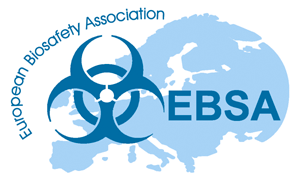Past EBSA courses
-
25 April 2017
EBSA20 - Course H - Role of biosafety professional with respect to occupational health when working with experimental animals, including Zebra fish and other aquatic species
Read moreWorking with animals may pose unique risks to animal handlers, lab-technicians or scientists. Improper risk control or issue management may lead to serious consequences in affected people as well as for the company or institution.
-
25 April 2017
EBSA20 - Course E - Biological waste management
Read moreBiological waste originates from human or animal health care, medical and biotech research, laboratories, greenhouses and other facilities.
-
25 April 2017
EBSA20 - Course C - Critical engineering in BSL3 facilities
Read moreBSL3 facilities are technically complex facilities, and generally a major and quite unique investment for most institutions. It is therefore important that they operate effectively and efficiently according to the needs of the organisation.
-
20 April 2016
EBSA19 - Course K - How to decide - the border between contained use or deliberate release?
Read moreDid you ever ponder whether an activity with genetically modified organisms (GMO) would fulfil the requirements for contained use or whether you had to submit an authorisation application for deliberate release?
-
20 April 2016
EBSA19 - Course J - “Beautiful” facility designs - are they useful and safe to operate
Read moreThis course discusses the different lab layouts for BSL-1 and BSL-2 facilities. Particular attention is given to the personnel and material flows in different settings.
-
20 April 2016
EBSA19 - Course I – Workshop - Animal By-Products in Research
Read moreAnimal by-products (ABP) are defined as entire bodies or parts of animals, products of animal origin or other products obtained from animals, which are not intended for human consumption.
-
20 April 2016
EBSA19 - Course H - Using risk assessment in investigating accidents to prevent recurrence
Read moreThe value of risk analysis and assessment and the subsequent selection of adapted and most effective safety measures should not only be appreciated after an incident already happened, but also when evaluating new facilities and activities. Its use in investigation of an incident is crucial to determine where otherwise sensible measures failed.
-
20 April 2016
EBSA19 - Course G - Stopping/avoiding the little incidents before they lead to big accidents
Read moreFortunately most laboratories never experience a significant incident (accident, ill-health or damage to property, equipment or the environment) but what about the less serious, apparently trivial incidents that may get ignored and/or not even reported. Such events could potentially give rise to more significant outcomes under only slightly different circumstances, e.g. more hazardous material being handled.
-
20 April 2016
EBSA19 - Course F - They are trained, but are they competent?
Read moreA lack of competence has contributed to a number of major accidents and has been identified as a key underlying cause of incidents in biocontainment facilities.
